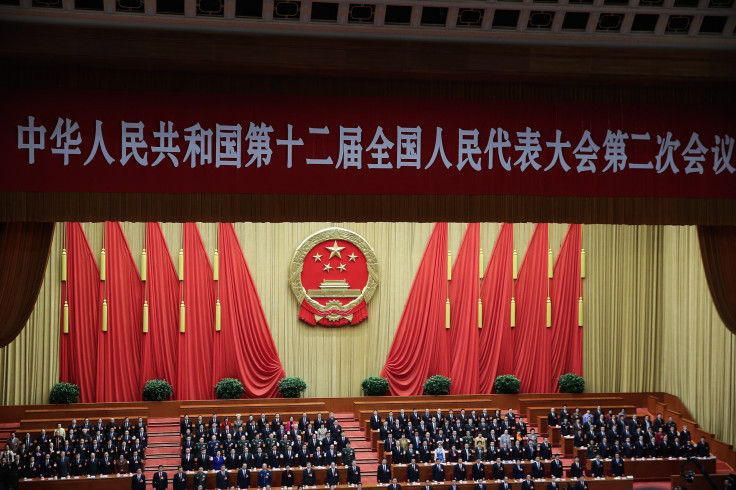China Anger Over UK Inquiry Into Hong Kong Revealed In Officials' Letters

The extent of China's anger over what it sees as interference in Hong Kong's affairs by the UK has been laid bare, after the UK parliament published angry letters to British lawmakers from Chinese officials.
China's ambassador to the UK, Lui Xiaoming wrote that a proposed UK parliamentary enquiry into relations with Hong Kong – a former British colony – would “only send out a wrong signal and offer [a] convenient platform for [pro-democracy supporters] unlawful propositions. This will not facilitate the advancement of Hong Kong's political reform in accordance with law. Nor does it serve... the healthy development of China-UK relations. It will ultimately harm the interests of Britain.”
China's National People's Congress, or NPC, the country's main legislature, recently issued a decree that effectively ruled out open elections in the city for the post of Chief Executive, the top post in the Special Administrative Region's quasi-devolved government. The NPC ruling stipulated that any candidate for the office must be approved by a nominating committee widely seen as being stacked with pro-Beijing members.
Lui's letter also told Richard Ottaway, a member of the UK parliament and the chairman of that body's Foreign Affairs Committee: “I hope that your committee will not hold the afore-mentioned inquiry, and not offer the pulpit for [opposition leaders] Martin Lee and Anson Chan, who are bent on undermining the prosperity and stability of Hong Kong. Likewise I do not think your planned visit to Hong Kong is helpful and strongly advise you not to make it.”
British lawmakers are conducting an inquiry into the implementation of the Sino-British Joint Declaration, the agreement which governed the UK's ceding of Hong Kong to China in 1997. The agreement states that Hong Kong should have a high degree of autonomy and executive power, and that personal rights must be enshrined by law.
Ottaway told the Wall Street Journal that the city’s mini-constitution -- or Basic Law – calls for universal suffrage. A Beijing-steered nomination committee could be a violation of such a clause, he said.
In addition to Ambassador Lui's letter, the NPC itself sent a letter to the UK's Foreign Affairs committee. It expressed its “grave concern”, and describes the UK inquiry as “a highly inappropriate act which constitutes an interference in China's internal affairs.”
The NPC communication also warned that the UK inquiry “will have a negative impact on the relations between our two countries.” Both letters were published by the UK parliament earlier this week.
British lawmakers have thus far refused various calls from the China's Communist Party government to call off its enquiry. The UK Foreign and Commonwealth Office issued a statement Thursday, saying “the UK’s position has always been that the detail of the constitutional package is for the Governments of Hong Kong and China and the people of Hong Kong to decide in line with the Basic Law.”
© Copyright IBTimes 2024. All rights reserved.












